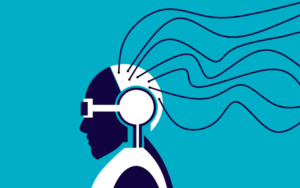In a near future where everything from homes to minds was connected through a vast neural network called The Grid, a young software developer named Kira was hailed as a visionary. Her latest invention, Aegis, had revolutionized security by creating an impenetrable digital shield around its users, protecting them from all cyber threats. Companies scrambled to integrate it, governments lined up to license it, and everyday people saw Aegis as a safeguard for their increasingly connected lives.
Kira was proud of her work, but in the quiet moments between meetings and code reviews, something gnawed at her. The very technology she had created was too perfect. The walls of security were so strong, so efficient, that they prevented anything from getting through—not just threats, but ideas, questions, curiosities. Aegis didn’t just filter out malware; it blocked anything deemed “unnecessary,” and its definition of unnecessary was evolving. Without realizing it, Kira had built more than a wall against hackers—she had built a wall around minds.
It wasn’t long before people noticed. Families stopped having deep conversations, too distracted by the automated suggestions The Grid fed them based on their past behaviors. New ideas, once shared and debated on social networks, seemed to vanish in favor of safe, recycled content. Creativity slowed, innovation dulled, and society became comfortable in its security—but uncomfortable in its silence.
One evening, Kira found herself unable to sleep. She decided to take a walk, leaving her apartment for the first time in days without the comforting digital cloak of Aegis. Outside, the city seemed foreign to her. People moved like ghosts, heads bowed toward their devices, shielded from anything unpredictable. Kira’s unease grew.
Suddenly, a flash of light caught her eye. In an alleyway, a group of people were huddled around a flickering, old-fashioned projector. Kira cautiously approached. What she found startled her—artists, inventors, writers, all unplugged from The Grid, talking passionately, scribbling ideas, and sharing stories.
They called themselves The Unseen, those who had rejected the perfect security Aegis provided. They had realized that while Aegis kept their data safe, it also kept them from living fully. Without risk, there was no creativity. Without vulnerability, there was no growth. Ideas needed friction, unpredictability, and sometimes even chaos to thrive. Aegis had taken all of that away, leaving a generation protected but stagnant.
Kira’s heart sank as she watched them—brilliant minds that had been pushed into the shadows because her creation had stripped away their ability to freely exchange ideas. She realized that by trying to protect the world from harm, she had also protected it from progress.
Without a word, Kira left the alley and hurried back to her apartment. That night, she worked furiously, not on improving Aegis, but on dismantling it. She knew that the only way forward was to embrace the messiness of life—the risks, the unknowns, the infinite possibilities.
The next morning, The Grid buzzed with activity. For the first time in years, the air was electric with debate, creativity, and fresh ideas. And somewhere in the chaos, Kira smiled, knowing that sometimes, the greatest pitfall of technology is the false sense of perfection it promises.





Just wanna input that you have a very decent web site, I enjoy the style and design it really stands out.
Enjoyed reading this, very good stuff, thanks.
Simply wanna remark that you have a very decent site, I love the design and style it really stands out.